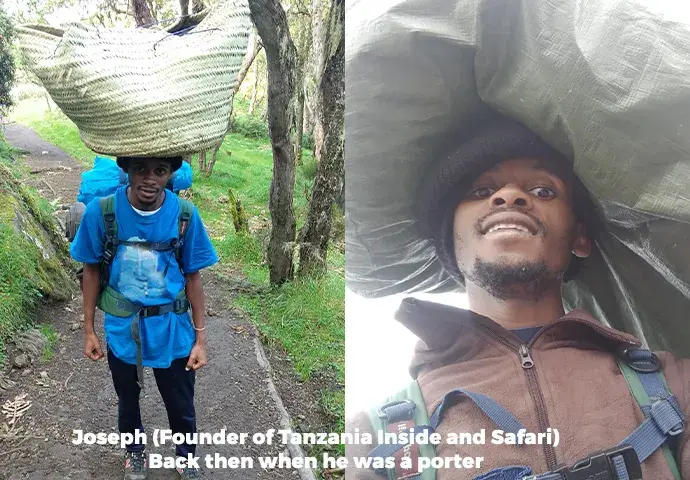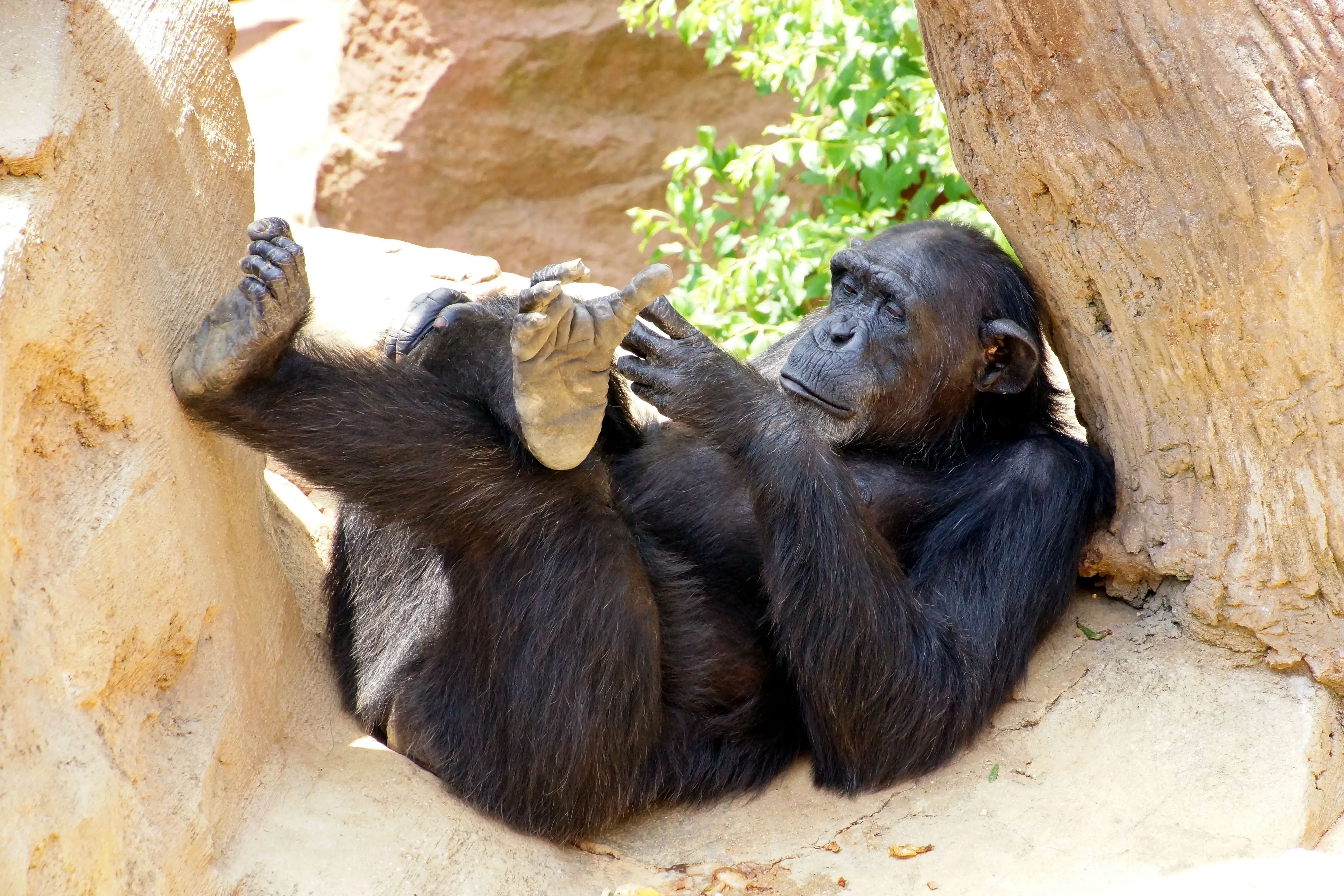
The Kilimanjaro Porters
There is no doubt that the situation for Kilimanjaro porters has improved in recent years.
That is not to say it's good...
Sure, the load they lug up the mountain has been reduced from something like 40 kg to hopefully no more than 20 kg.
There is a recommended (but often ignored) minimum wage, and some responsible operators supply their porters with adequate shelter and food during a climb.
Still, the existence of most porters on Kilimanjaro is a miserable one, and one big reason for that is that many clients aren't willing to pay the real cost of a Kilimanjaro climb.
The current situation of the porters of Kilimanjaro
Kilimanjaro porters are at the bottom of the food chain. A cut throat price war rages on the slopes of Kilimanjaro and when budget operators cut corners to save money, the porters are the first to suffer.
Cheap Kilimanjaro climbs can only be done at the expense of your porters, period.
Porters are not usually employed permanently. Some quality responsible operators have teams of porters that they use on all their climbs, but most porters freelance. They may walk to the national park gate every day, sometimes for many miles, hoping that someone will be looking for porters.
That's where many budget operators pick up their porters.
Budget operators do not pay their staff well, in some cases not at all. Porters don't have many options. There are many more porters available than needed and they are all desperate for work.
There is a recommended minimum wage for Kilimanjaro porters. (As of 2017: Tsh 20000/ $8.50 per day.)
But usually operators pay a lot less, maybe half that.
A porter on a budget Kilimanjaro climb may not get paid at all by the company. Those porters rely solely on your tips to feed their family.
Correspondingly you will be expected (and if needed hassled) to pay much higher tips than you would on a quality climb. Your porters will likely still end up with less money in their hands, since few climbers are aware of this. (And if you pay all tips to the guide to distribute the porters may see little if any of the money.)
Also, picture a day in the life of a porter on Kilimanjaro...
They spend six days on the mountain, climbing in ragged clothes and shoes with 20 kg on their head and back.
After you set out in the morning they pack up your tent and all the other equipment, they race past you to set everything up again at the next camp (sometimes for lunch also), they help the cook, do the dishes, serve your dinner, carry all the water from the nearest stream, boil it so you can have a hot wash...
Porters work very hard, all the time wondering if they will receive any pay for this or not.
It doesn't end there.
Porters don't have their own sleeping bags or tents. If they were rich enough to afford something like that they wouldn't be portering!
A responsible climb operator will have tents and equipment not only for clients, but also for staff. That costs money.
Carrying that equipment up and down the mountain needs extra porters. That costs money.
Feeding the porters in a way that actually sustains them during the climb also costs money, both for the food itself and for carrying it up the mountain.
On a cheap Kilimanjaro climb, those are the first costs that get cut.
Every year several Kilimanjaro porters die, but you won't hear about it. They die of exposure (freeze to death), a result of the insufficient clothing, shelter and food supplied to them during the climb.
Make no mistake: very, very few operators pay or treat their porters fairly. Some of the big, well known outfitters are amongst the worst. Don't assume just because someone is mentioned in a big guidebook they must be doing the right thing. More often than not they don't.
Book a cheap Kilimanjaro climb and you are fully supporting the shameless exploitation of the very people who make it possible for you to climb Kilimanjaro at all, the porters.
learn more about Mount Kilimanjaro cost and prices















